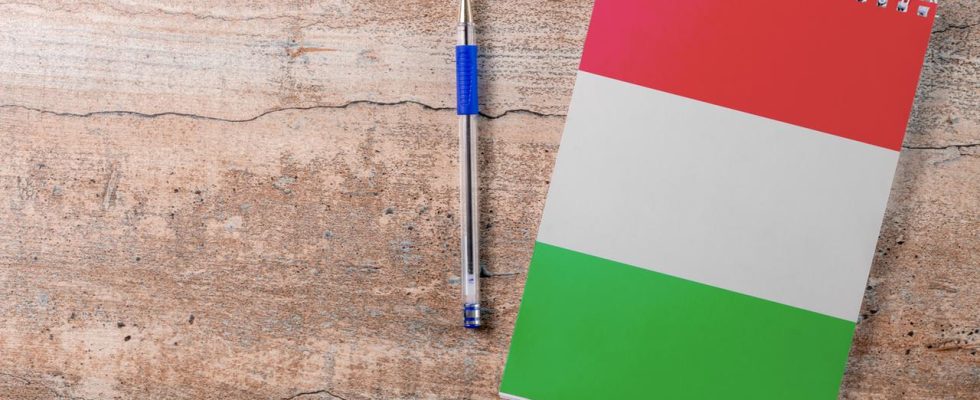A new type of school will soon be starting in Italy. The so-called Made in Italy high schools are intended to enhance Italian achievements. Critics see this as an identity project by Meloni.
How the government under Prime Minister Giorgia Meloni imagines a school of the future in Italy can be seen in Ostia, just outside Rome. Ottavio di Paolo is responsible for the new high school branch at the Giovanni Paolo School, where classes are scheduled to begin in the fall.
“In our opinion, this high school will increase self-esteem in order to move the country forward,” says the vice-principal. His school is “proud to have this type of high school.”
Vice-principal Ottavio di Paolo says he is proud that his high school offers the new “Made in Italy” school type.
The new type of school in Italy, offered in 92 locations, is officially called: “Made in Italy” high school. According to Education Minister Giuseppe Valditara, it is intended to “enhance, promote and protect Italian excellences.”
In other words: In the high school branch with the English name, pride in Italy, especially pride in the Italian economy, should be taught.
“Part of a vision of the right”
For Massimiliano Panarari, professor of sociology at the University of Modena and Reggio Emilia, the new high schools are part of a political strategy with which the Meloni government is changing the country: “The ‘Made in Italy’ high school is part of a vision of the new government that dominates wants to be, also through the culture, the symbolism, the soft power.” The schools wanted by the government are part of a much larger cultural project.
Italy’s parliament decided to introduce the new high school branch at the end of last year as part of the so-called “Made in Italy” law. Politically silent, as was so often the case under the Meloni government.
In addition to new schools, the law will introduce a “National Day of ‘Made in Italy'” to be celebrated on April 15th, as well as a “Sovereignty Fund” that the government plans to set up to help nationally important economic sectors.
“The ideological dimension is obvious”
In Panarari’s opinion, this law follows an “identitarian logic that is politically typical of the actions of a populist force like the Brothers of Italy”, the party of Prime Minister Meloni. The word “identitarian” is explicitly used in the explanations of the law; in connection with the term “Made in Italy” there is talk of “identitarian heritage”. Panarari’s verdict: The “ideological dimension” of this law is obvious.
“From craftsmanship to marketing, art, business and cultural heritage”
In Ostia, deputy school director Di Paolo shakes his head vigorously when asked whether the new high school in Italy is a school with a clear political orientation: “No, absolutely not. As a school, we fundamentally have the attitude that politics outside of school must stay.”
According to the law, economics and law should be taught in the “Made in Italy” high schools, among other things, in a “cultural framework” of “interdisciplinary exchange”, for example with history, literature and art history. Two modern foreign languages are also required, and “techniques and market strategies for “Made in Italy” companies are also taught.
Di Paolo from the Giovanni Paolo School in Ostia names the concrete learning goal of the new high school: “Knowing what ‘Made in Italy’ means, in a 360 degree perspective – from craftsmanship to marketing, art, business and cultural Heritage”. This could, says Di Paolo, “extend over 1,001 areas”.
Little interest so far
Interest in the new type of school among students and their parents has so far been limited. According to media reports, there were just under 400 registrations at the registration deadline in the middle of the month – nationwide. In Ostia at the Giovanni Paolo School they would like to start the “Made in Italy” high school branch after the summer with probably ten students.
When asked, the Ministry of Education did not want to comment on the low registration numbers. But Professor Panarari is sure that the government wants to stick to the new high school. Especially for Meloni, the Brothers of Italy and Economics Minister Adolfo Urso, “the ‘Made in Italy’ high school is a very important identity symbolic project,” explains Panarari.
That’s why, says the sociologist, “they will continue, even if it is an educational offer that is obviously not really accepted or wanted by the country.”
Jörg Seisselberg, ARD Rome, tagesschau, February 27, 2024 5:57 p.m

